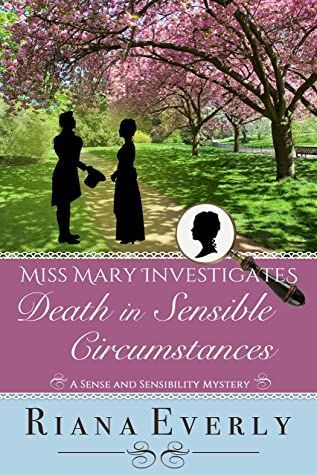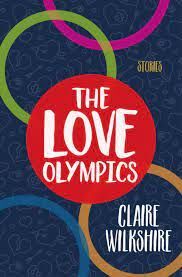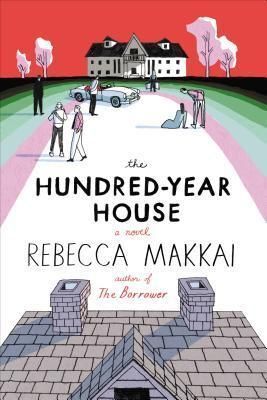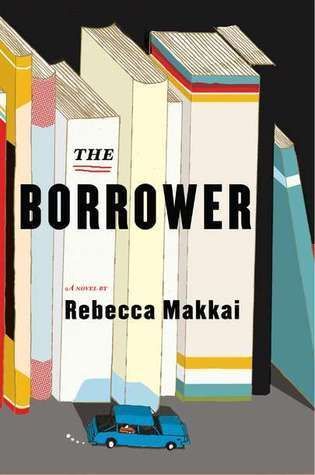Trudy J. Morgan-Cole's Blog, page 20
April 9, 2023
Death in Sensible Circumstances, by Riana Everly

This is the four “Miss Mary Investigates” novel by Riana Everly, in which Mary Bennett from Pride and Prejudice teams up with investigator Alexander Lyons (not a Jane Austen character) to solve mysteries set against the backdrop of characters and settings from Austen’s novels. The first, Death of a Clergyman, takes the plot of Pride and Prejudice in a new direction; Death in Highbury uses the plot of Emma as the setting for its mystery; Death of a Dandy improvises murder around Mansfield Park. As the title suggests, this latest volume introduces the Dashwood sisters and other characters from Sense and Sensibility, and finds Alexander and Mary prowling some less-savoury areas of London in search of the murder of Robert Ferrars.
As always with these novels, the mystery is good, but the unfolding relationship between Mary and Alexander, and Mary’s own growth as a woman from the bookish and rather priggish middle Bennett sister, are the real delights here. Added to this is the rich tapestry of well-researched London life of the period, making this an enjoyable historical mystery, especially for Jane Austen fans who don’t mind some variations on the familiar stories.
March 19, 2023
I Have Some Questions For You, by Rebecca Makkai

You probably already know that I (like so many other people) loved Rebecca Makkai’s book The Great Believers, and then, more recently, that I discovered and enjoyed her two previous novels. Also, she’s one of those writers who just has a wonderful, enjoyable presence on social media … so all of this added up me eagerly awaiting her new release, I Have Some Questions For You.
Although it’s a very different type of novel, Questions reminded me in some ways of another book I loved last year, John Darnielle’s Devil House, in that both novels dive into our cultural fascination with true crime and unsolved murders, in ways that fully expose how problematic that fascination is.
In this novel, the unsolved murder is one fairly close to the narrator, Bodie Kane, who returns at midlife to teach a two-week course at the boarding school where her roommate was murdered when they were teenagers. Thalia Keith’s death is not considered an “unsolved mystery” — a man has been in jail for over two decades for the crime. But Bodie, who now has a career as a podcaster, becomes increasingly suspicious that the wrong man is incarcerated for the crime. When her students in the podcasting course want to do a true-crime style podcast about Thalia’s murder, she encourages them, finding herself and once intrigued and slightly guilty about her fascination with the case.
This is so much more than a mystery novel (though it does have a lot of the beats of good mystery too, and it doesn’t leave you hanging about whodunnit, which is a nice bit of closure you don’t always get in a literary-type mystery/thriller). It’s a deep dive into the ambiguity of Bodie’s feelings about her own past, the murdered girl, the various suspects, and her own complicity in the often-ghoulish nature of true crime stories. Bodie is accused of hypocrisy when she repeats the slogan “believe women,” as most of us 21st century feminists would do, yet finds herself skeptical when a woman accuses Bodie’s ex-husband of inappropriate behavior. It’s a gray area, as is almost everything in this novel — despite the stark black-and-white of a murdered girl and an unjustly accused man (who are, respectively, white and Black, so of course racism is a theme here too, as it so often is in these crime stories). I found this an absolutely absorbing, thoughtful, fascinating story about the Pandora’s box that gets opened when anyone reopens a cold case.
March 17, 2023
The Adventures of Amina Al-Sirafi, by Shannon Chakraborty

I’ve been waiting awhile for Shannon Chakraborty, whose Daevabad Trilogy I loved so much, to come out with the first volume in her new series, but at last it is here! And it’s just as rich, exciting and engaging as City of Brass and its sequels — maybe even more.
This novel falls into a category I’d call “historical fantasy,” in that it’s very firmly located in the real world in a real place and time (in this case, the Arabian Sea and the lands around it, about a thousand years ago in the era of the Crusades). The fantasy elements come into it when creatures from the mythology and folklore of that time and place turn out to be all too real — like, for example, Amina’s not-quite-human ex-husband.
Amina Al-Sirafi is a retired pirate, a devout but not always totally observant Muslim, a mother who is deeply concerned for her daughter’s safety, a middle-aged woman with a lot of secrets in her past. When she’s lured back to her old ship and her old crew for just one more job, it turns out to be a far more complicated task than it originally seemed to be, bringing her into contact not just with the aforementioned ex-husband but with a number of other dangerous enemies and possibly even more dangerous allies, some more human than others. It’s an absolutely fun, rollicking romp on the high seas with the added twist of a heroine who is neither your average swashbuckling pirate nor a wide-eyed young ingenue, but a woman of age, experience, and responsibilities. This isn’t a perspective we often get in fantasy novels, and I’m very glad this is slated to be the first of Amina’s adventures and not the last.
March 4, 2023
Special Topics in Being a Human, by S. Bear Bergman

One type of book you won’t see me review here very often is a self-help book. In fact, I have almost an immunity to self-help books: I can’t get very far with them, often feeling either that they’re answering different questions than I have ever asked, or that they’re speaking a language that just doesn’t plug into my brain circuits. The only “self-help” type book I’ve ever loved is Tiny Beautiful Things, by Cheryl Strayed. That’s a powerful, no-nonsense essay collection; this is a powerful, no-nonsense sort-of graphic novel, with a thoughtful, tender, insightful look at how to navigate a bunch of different life situations, from breaking up, to dealing with anger, to taking a compliment, to remembering a trans person’s new name and pronouns. The text and illustrations work well together, and it’s just a lovely guide to … well, being a human. I highly, highly recommend picking up a copy. You may well find something here that speaks to you.
Skye Falling, by Mia Mckenzie

This is a novel with a great premise and an engaging cast of characters that touches on deep subjects in a way that manages to work in a lot of lightness and laughter — while never undermining the depth of what the characters are experiencing.
Skye is a successful Black entrepreneur, nearing 40, single, and operating her own highly successful niche travel company. In between trips, she returns to her home city of Philadephia and stays at a BnB owned by her high school friend Viva, but other than that she tries to avoid contact with her family (aging mom, and the somewhat deadbeat brother who lives with their mom) or other old friends. Skye has issues with commitment and attachment, and chooses to deal with those by jetting around the world as much as possible and, apart from her friendship with Viva, maintaining as few ties as possible.
Then a relationship from the past comes back to confront her in the most unexpected way. Years earlier, Skye sold some of her eggs to an old friend who was infertile. The friend, with whom Skye completely lost touch, has now died, and her 12-year-old daughter looks up her “egg mom.” Trailing along with this engaging, precocious pre-teen are a whole constellation of possible complicated relationships — including with the aunt who’s raising her, a woman Skye finds dangerously attractive.
There are, as I said, a lot of heavy issues here — grief, abuse, racism, and much more — but there’s a light touch to how author Mia Mackenzie paints her characters, and a lively vividness to Skye’s first-person voice that pulled me into the story and wouldn’t let me go. An absolute delight.
Memphis, by Tara M. Stringfellow

This is another multi-generational family saga, this one set, as the title tips you off, in Memphis, with three generations of Black women. Their relationships, ambitions, goals, and setbacks are all set against the backdrop of systemic racism in the American South, a pervasive presence that touches ever aspect of their lives, even when all the want to do is live those lives. The writing is strong, the characters are believable, and the portrait not just of this family but of their specific place and the decades of time and events they live through, made for a book that was both enjoyable and troubling in equal parts.
The Love Olympics, by Claire Wilkshire

If you’re a real-life friend or a long time follower of this blog, you may know that I have a mental block when it comes to reading short-story collections. It’s not that I don’t enjoy reading the actual short stories; I often really love a well-written story. But I do feel a little resistance upon approaching a collection, because if it’s an author I like, I always find myself thinking, “But wouldn’t it be better if they’d just written a whole novel that I could sink my teeth into?” This is all about my biases. When I actually do start a short story collection, it’s nearly always a pleasant surprise, and this was definitely the case with The Love Olympics.
I’ve heard Claire Wilkshire read a couple of sections from this book aloud, and I knew it was going to be beautifully written and deeply insightful. When I actually picked it up to read the collection through, Wilkshire did not disappoint. This is a very loosely linked story collection (in that the characters all exist in the same contemporary St. John’s world, and several characters recur in different stories), each one a brilliant and vivid slice of life. My favourite was “Baby Whales,” a story about four high school girls completing a Senior Skip Day scavenger hunt — an experience that’s recent enough for both my kids that I can still vividly remember the way it’s weighted with incipient nostalgia and all the anticipatory fear of launching into a new phase of life. This is a lovely, thoughtful collection that takes an unflinching but compassionate look into the lives of its large cast of characters. This is one of the four excellent books all competing for this year’s NL Reads competition, and it is absolutely worth picking up and diving into.
The Hundred-Year House, by Rebecca Makkai

Continuing my journey through Rebecca Makkai’s backlist, I read The Hundred-Year House, a multi-generational saga about a big old house (can’t remember where it is exactly, but I think maybe New England?) that operated for a few decades as an artist’s colony. The present-day occupants of the house are the descendeats of the wealthy family who originally owned it — a rather overbearing matriarch with her second husband, and two younger couples: the matriarch’s daughter, the husband’s son, and their spouses.
Hovering over these people and their present-day relationship is the past of the house — the hidden history of both the family and the artists who once lived there. The story of the novel unfolds backwards, beginning in 1999 on the cusp of the millennium (with some nice throwbacks to memories of Y2K bug fears!), then moving back to the 1950s and back again to the 1920s in scenes which answer some (though not all!) of the questions that the chronologically later scenes pose. It’s a fascinating way to tell this type of multi-decade, multi-generational story, and while I wasn’t sure every single plot point paid off the way I wanted to it, I found it an engaging read.
March 1, 2023
The Borrower, by Rebecca Makkai

I loved Rebecca Makkai’s novel The Great Believers. While waiting what seemed an endless age for her new novel, I Have Some Questions For You (finally out and next on my to-read list!), I discovered she had a backlist I hadn’t read, and dove into it with eager anticipation.
The Borrower did not disappoint. The main character is Lucy, a young woman working as a children’s librarian, though not particularly passionate about the job. The one patron she is drawn to is ten year old Ian, who has to hide his reading habits from his overprotective and strictly conservative parents. His parents have gone so far as to enrol their kid in a special youth program with a celebrated “pray the gay away” pastor, and Lucy is worried about him. When Ian runs away from home and hides out in the library, Lucy impulsively decides to abet his escape, setting in motion a chain of events that take her farther and farther beyond the point where she can ever return to her old life.
I adored both Lucy and Ian as characters, and found this a quick and compelling read. I had a couple of small plot quibbles, and I’m not entirely sure I was happy with some aspects of the ending, but none of that kept me from finding this book absolutely engaging.
The World We Make, by N.K. Jemisin

I really enjoyed The City We Became, the first volume in what I then thought was going to be a trilogy by acclaimed sci-fi writing Jemisin, in which major world cities become sentient, embody themselves in human avatars, and fight a cosmic evil. Along the way the planned trilogy turned into a duology, so the story concludes with The World We Make.
I enjoyed this book as well, and liked the clever way in which Jemisin creates the avatars who represent each of the cities. That was probably what I liked best, actually — the bigger, cosmic conflict, and the enemy the cities are fighting, always felt a little nebulous to me. The brilliance of the book was in its small moments when we meet London, or Paris, or Istanbul, all interacting with our main characters who are the cities of New York and its boroughs. The ideas of cities as near-superheroes in a fight against cosmic evil was never as compelling to me as the idea of cities embodying the history and spirit of the people who’ve lived in them — and that’s the idea this book develops really brilliantly.



